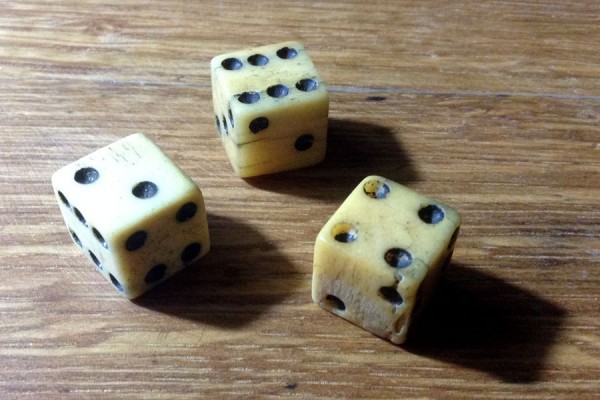 University of Windsor's Dr. Max Nelson has identified a game played by the ancient Greeks which involved the simulation of a naval battle using a board, counters and dice.
University of Windsor's Dr. Max Nelson has identified a game played by the ancient Greeks which involved the simulation of a naval battle using a board, counters and dice.
In an article published last month by the journal Mouseion, Max Nelson, Associate Professor of Greek and Roman Studies in the Department of Languages, Literatures, and Cultures, suggests that a millennium before chess was first played, the ancient Greeks designed the first war games in the west.
While the earliest known board games -- those from Mesopotamia and Egypt -- involved racing playing pieces along a course to a finish line, ancient Greeks devised a new sort of game, depicting fighting on sea and on land.
“War games, whether played online or on the table, fascinate many, yet most have no idea that these originated among ancient Greeks.”
Dr. Nelson says that it is even a surprise to most classicists, those who study ancient European civilizations, to learn that ancient Greeks played a board game simulating war at sea.
“Traditionally, such aspects of cultures have been neglected as trivial, but all facets of everyday life, including pastimes, can tell us quite a bit about a society. Ancient Greeks were highly competitive and quite bellicose, and war games are a logical manifestation of that ethos.”
Nelson says that in the past, those who studied ancient board games spoke about the Greeks playing a game called Five Lines.
“I am the first to identify this game as Ship-Battle (naumachia), which involved the simulation of a naval battle using a board, counters, and dice."
Another game, City-State (polis), was played on a grid and replicated a land battle, with players capturing each other’s pieces by surrounding them with two of their own.
He says these games were pastimes not for children but for adults, with Plato speaking of the high skill involved in playing, referring to the small number of top-notch gamers. Romans later imitated the Greeks with their own game of “little soldiers”, which even emperors played.
Nelson says today’s video games simulating war, such as the Call of Duty series, are extremely popular, while more abstract tabletop simulations of war, like chess, are intensely studied and elicit high-level competition, and his own interest is both personal and professional.
"I am a historian and a gamer,” he says. “So it seemed natural to explore the origins of board games."
